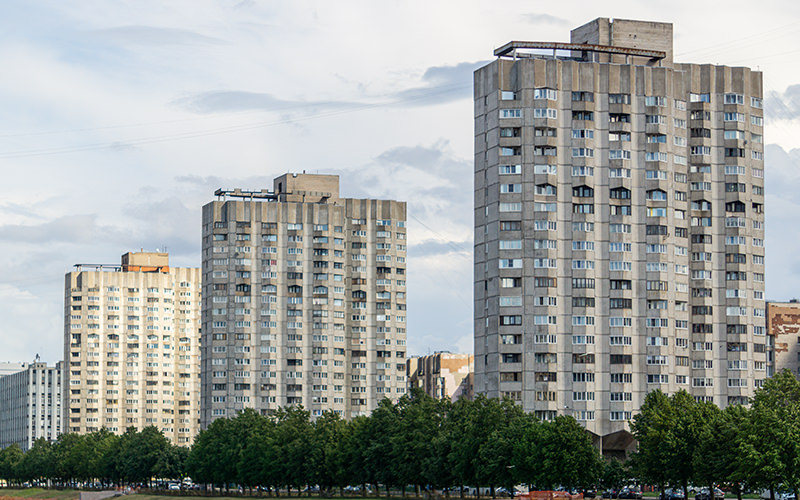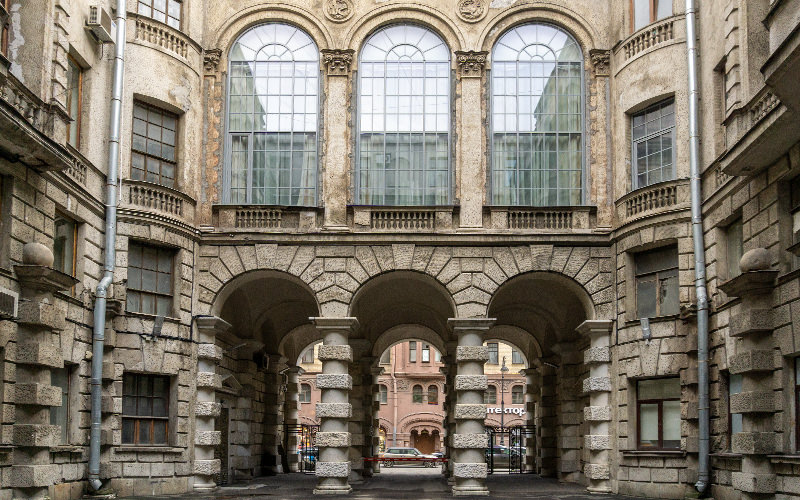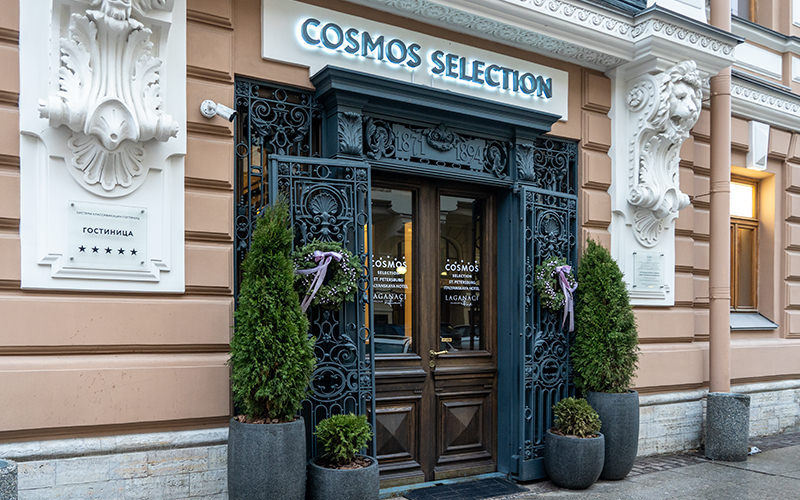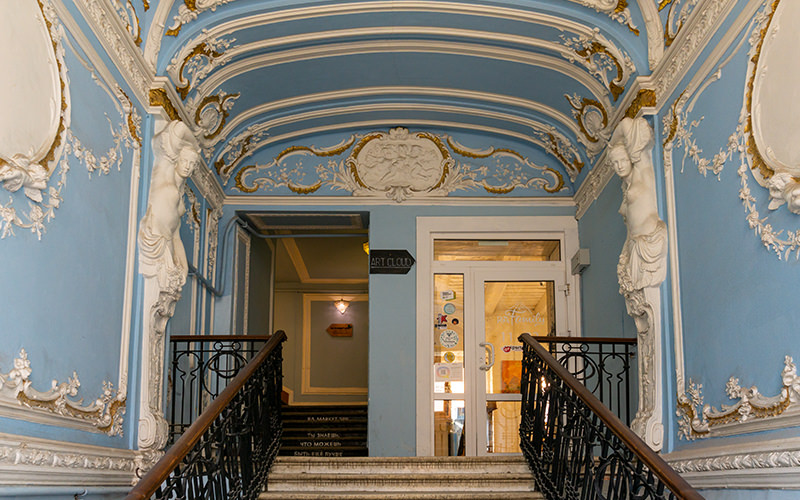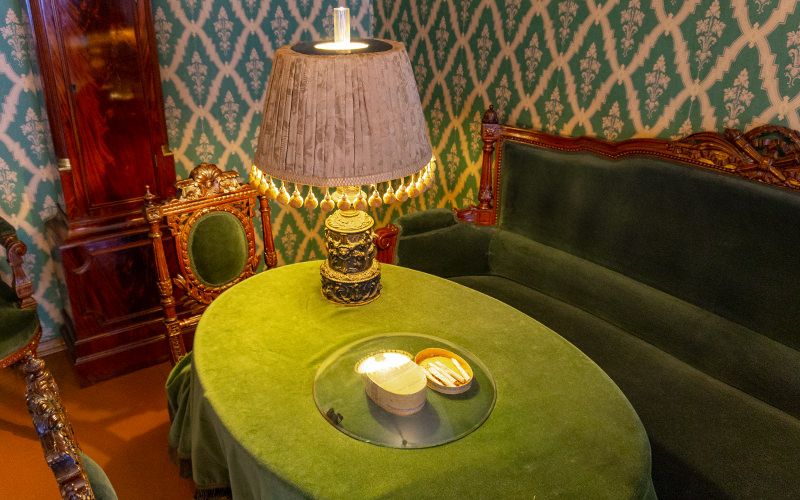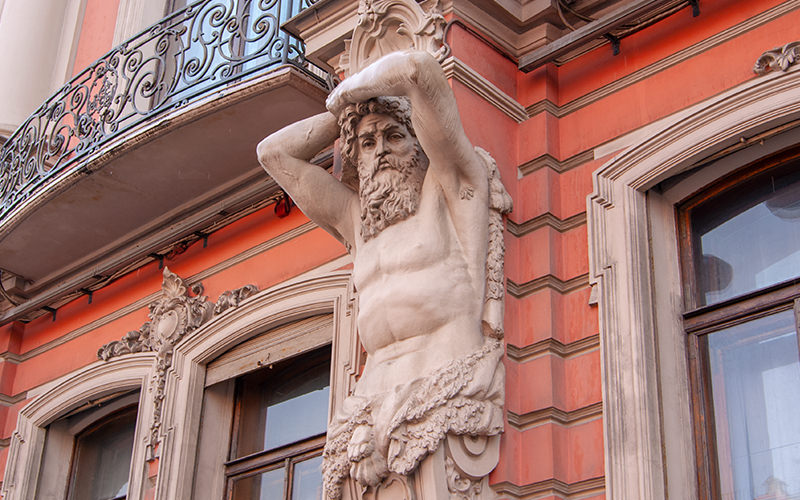While studying the history and architecture of the beautiful city of St. Petersburg, I often came across mentions of the income house of N. N. Nikonov on Kolokolnaya Street, also known as the Gingerbread House. For various reasons, during my walks in this area, I kept postponing a visit to this building. But today, I am ready to correct this oversight and tell you about this amazing monument of St. Petersburg architecture.
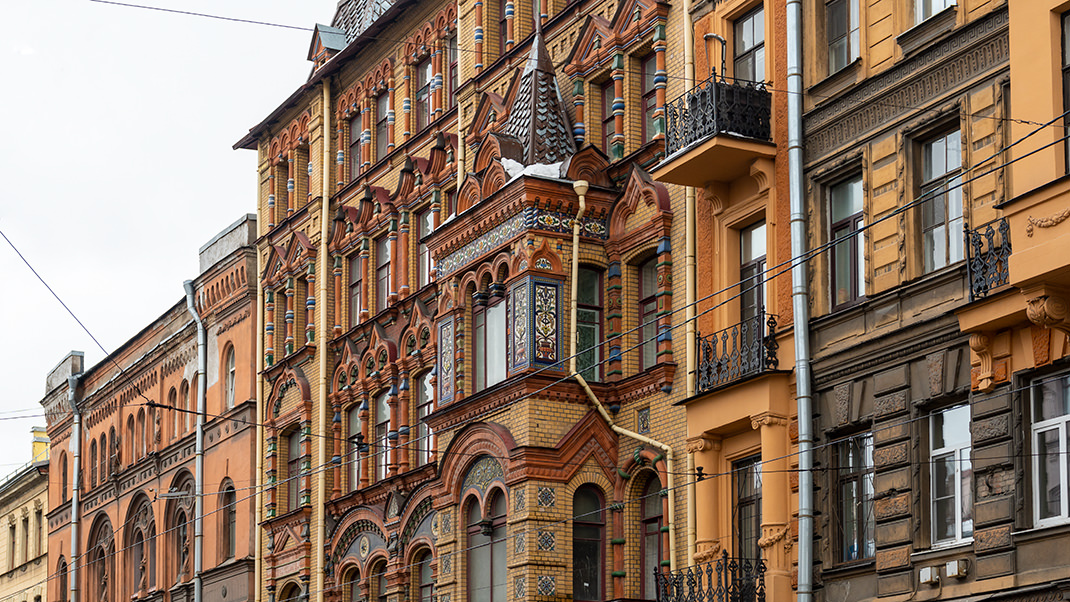
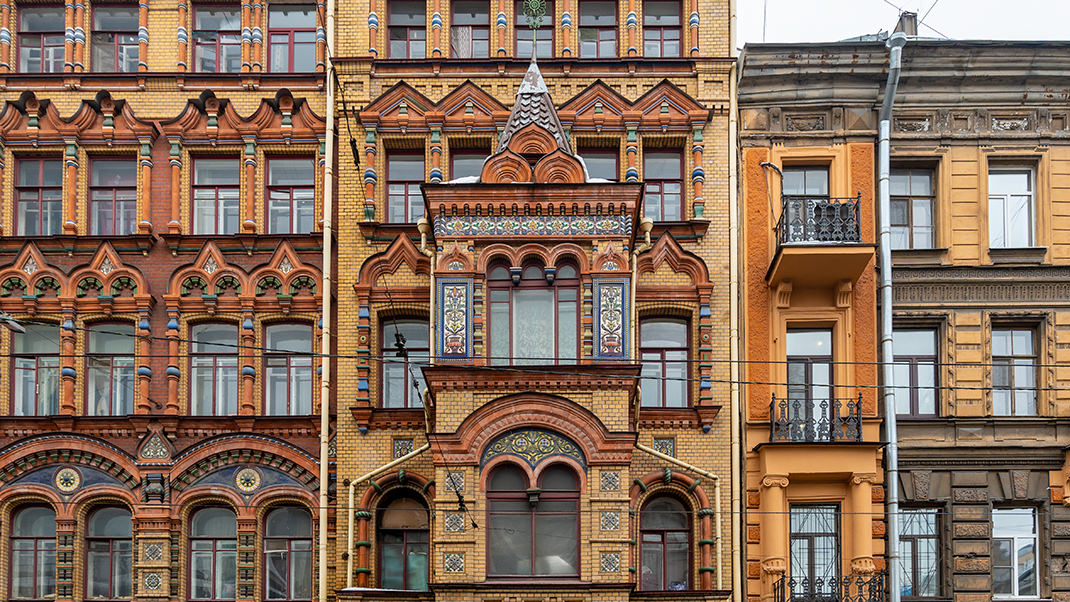
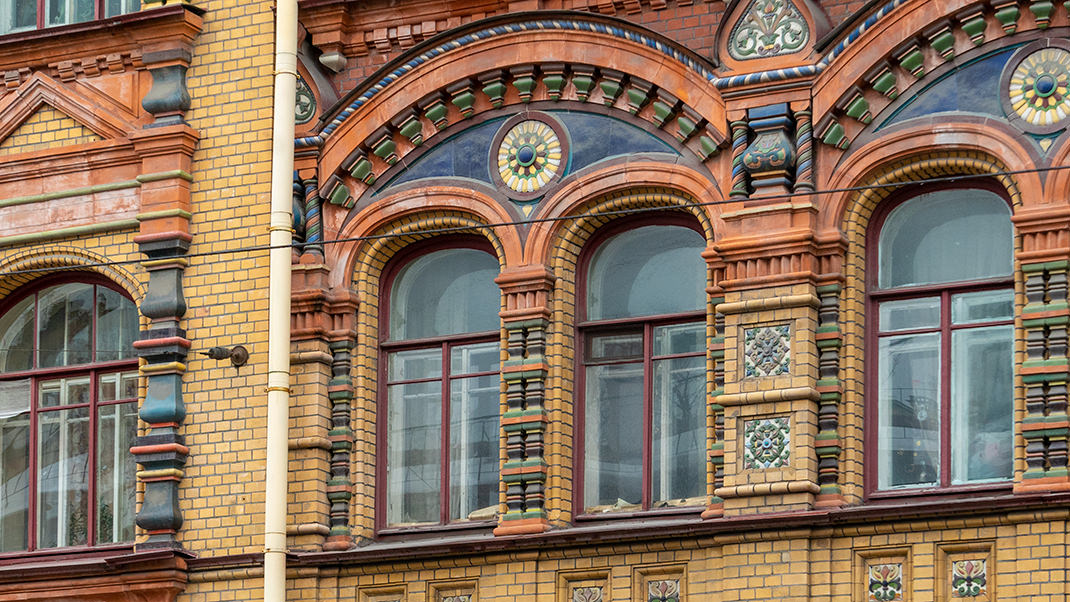
How to Get There by Metro
The address of the house is Kolokolnaya Street, 11, and the nearest metro transfer hub is "Vladimirskaya" — "Dostoevskaya," just a five-minute walk from there.
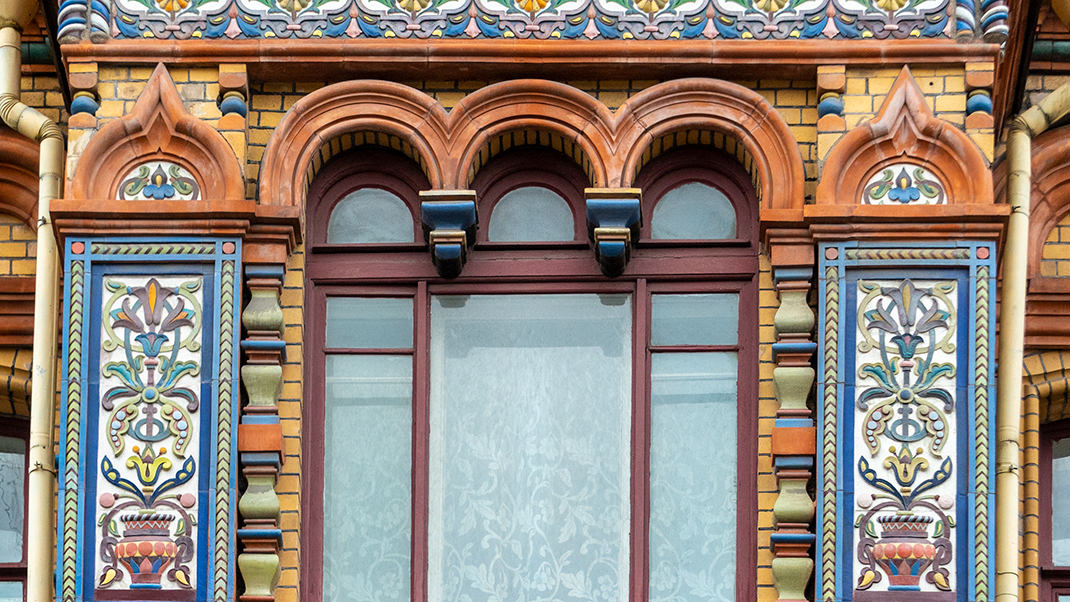
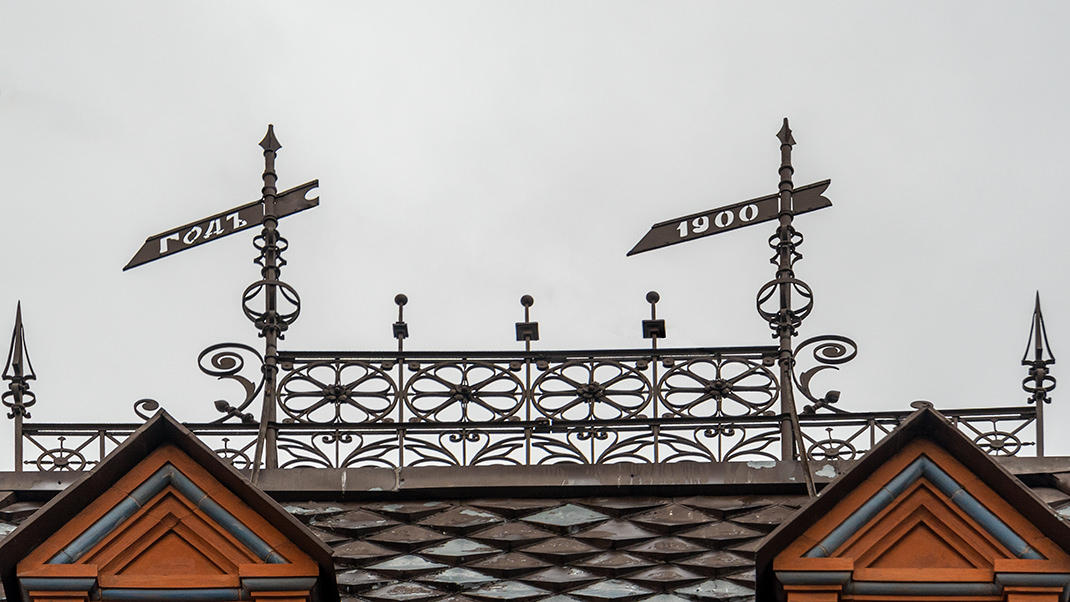
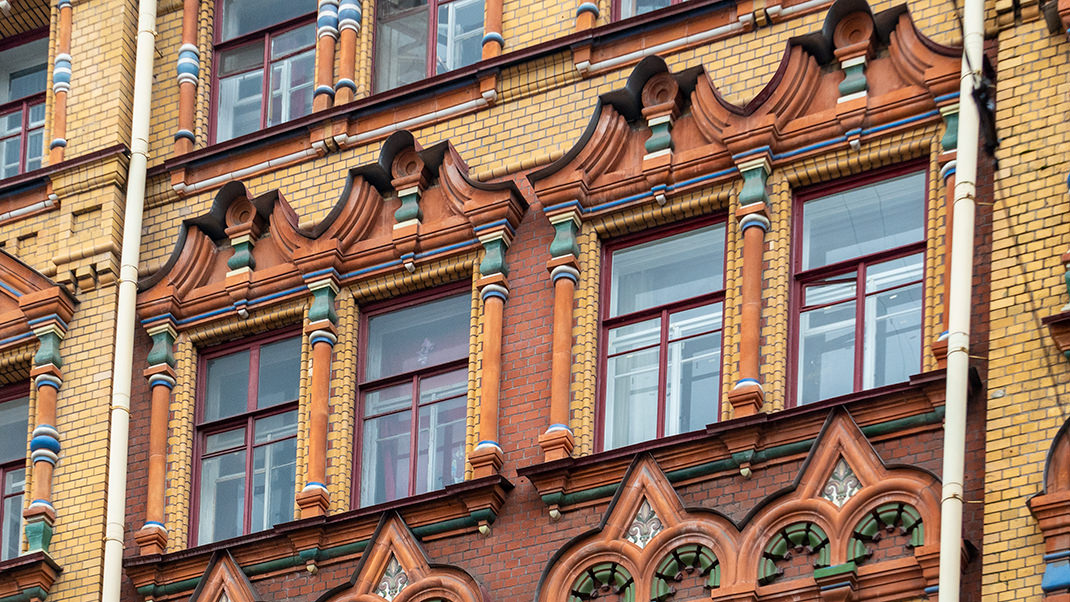
A Bit of History
As the name of the building suggests, it was built for the architect Nikolai Nikitich Nikonov's personal use. This took place in 1899–1900. The five-story house on Kolokolnaya was an income house, meaning its apartments were rented out for long-term leases. As for the architect himself, he is considered one of the masters of the Russian style. I have already mentioned a couple of buildings that Nikonov was involved in, including the income house of N. P. Basin and the Church of Seraphim of Sarov. In total, the architectural directory lists more than two dozen works by the architect.
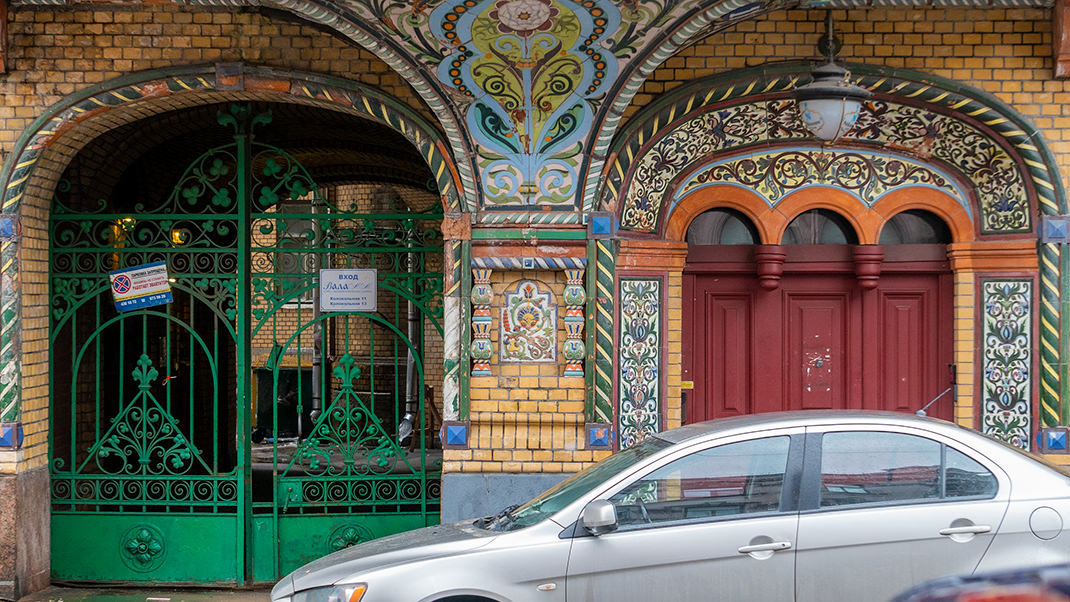
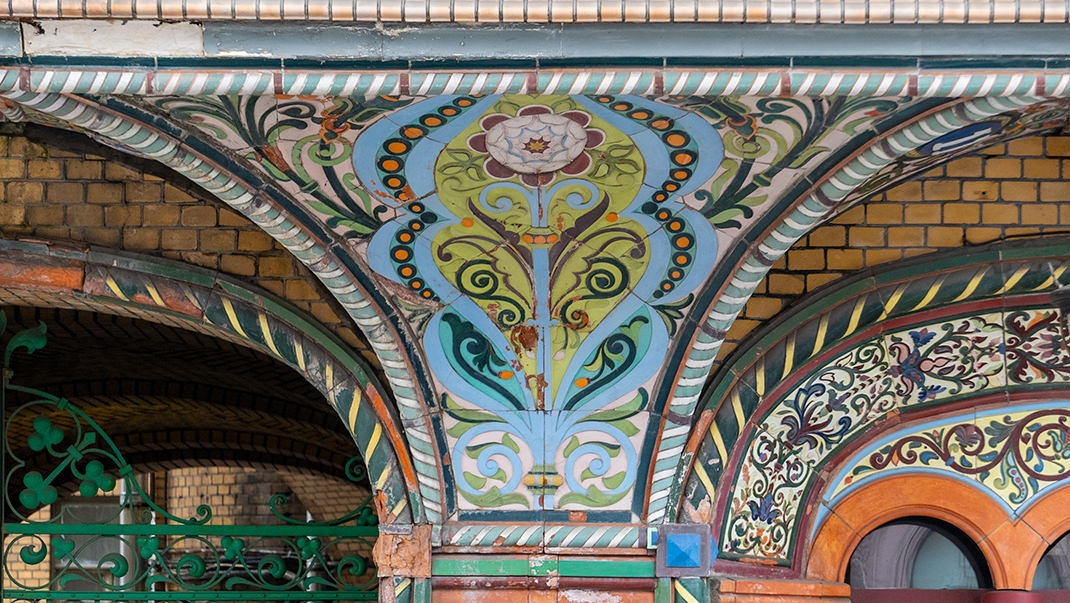
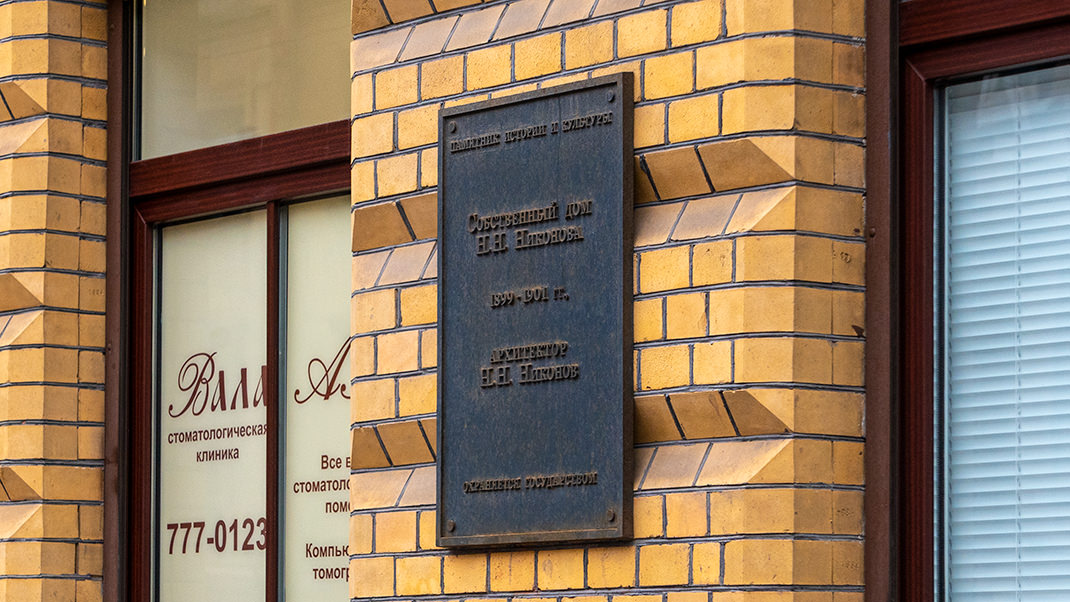
The income house on Kolokolnaya is also an example of the Russian style. This architectural direction, based on the techniques and forms of ancient Russian architecture, emerged in the second half of the 19th century. According to the "Great Russian Encyclopedia," "The ideological foundation of the Russian style was the idea of the unfinished development of the national tradition, interrupted by the Europeanization during the reign of Emperor Peter I."
Looking at Nikonov's bright house, one is involuntarily reminded of examples of ancient Russian architecture. Interestingly, while most of the facades of St. Petersburg buildings are adorned with decorative elements, leaving the courtyard buildings plain, here both the building's courtyard and the outer walls look particularly neat and cohesive. This is due to the use of multicolored brick and a variety of embossed decorative elements on the walls.
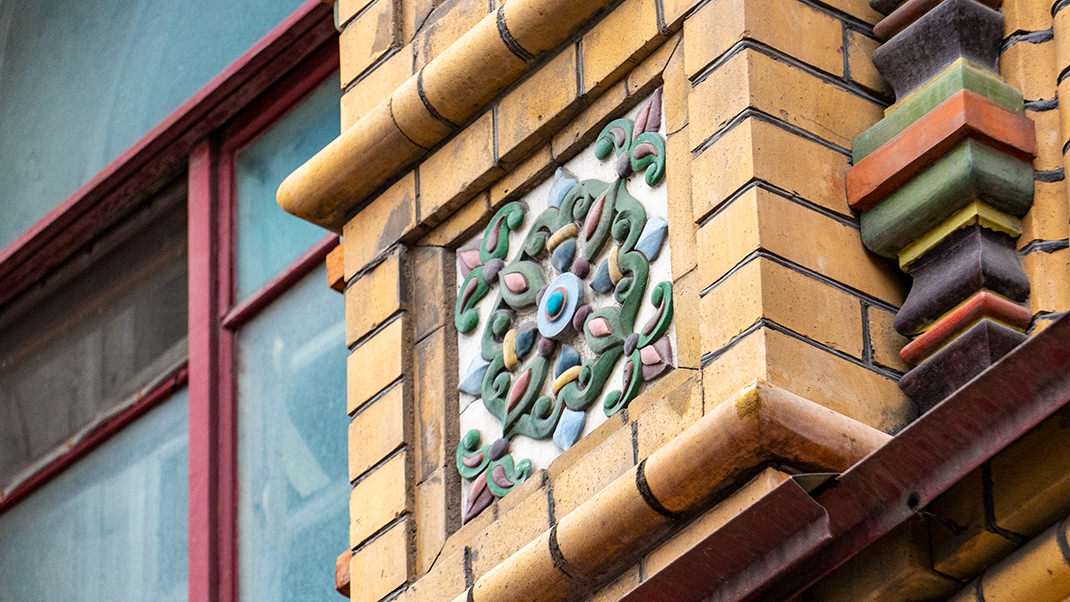
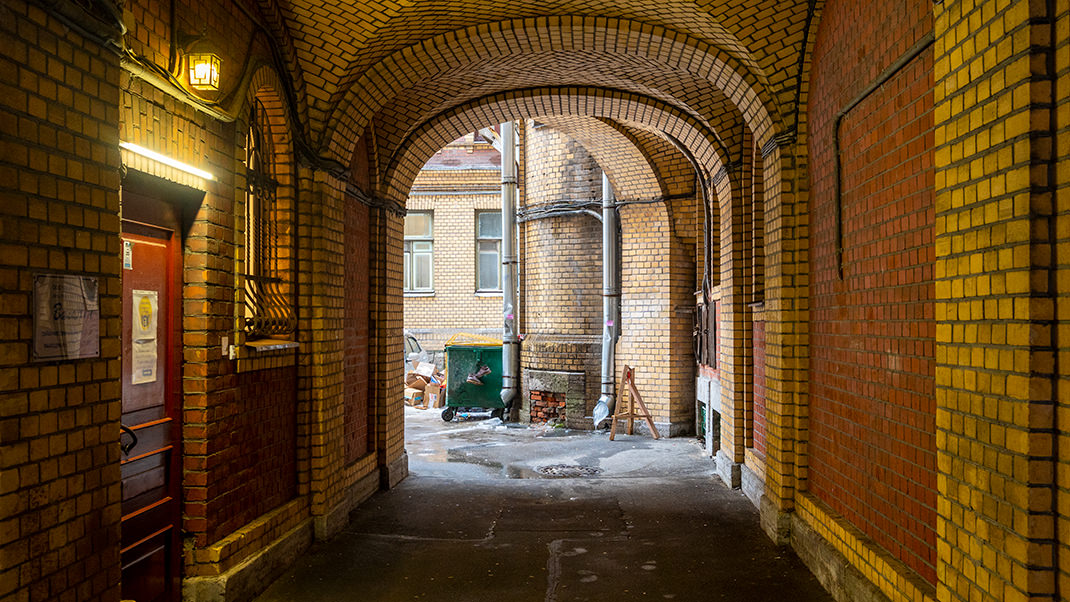
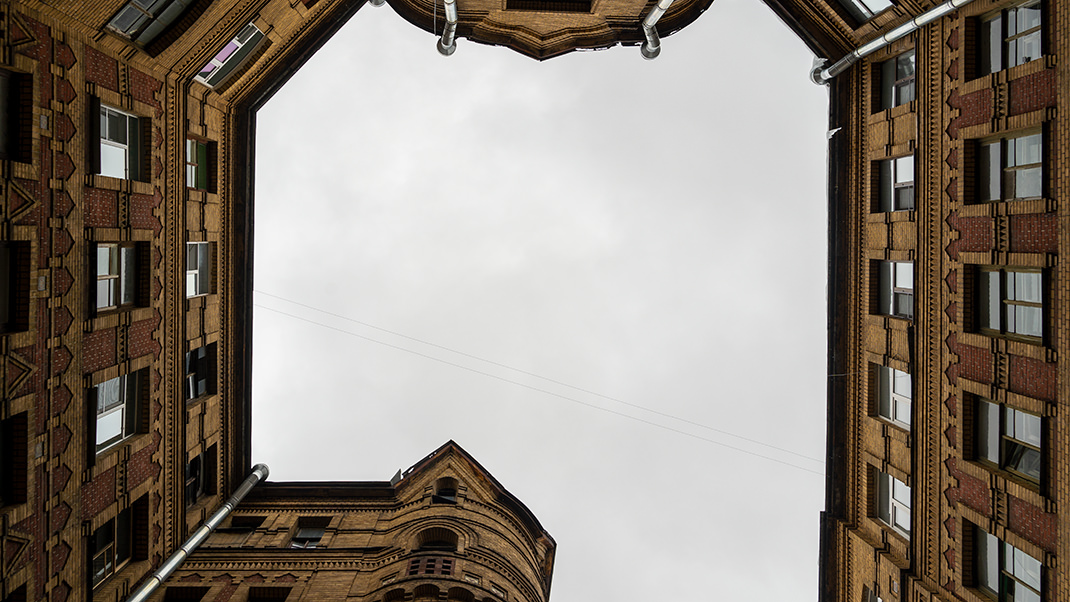
I haven’t come across any listings for apartments for sale in the building. This is not surprising, as according to the Housing Fund Registry, the house contains only 23 residential units. However, as with the income house of architect Baranovsky, which I mentioned in a recent article, tourists can stay at the hotel located within this unique building. As of winter 2022, the cost of staying here started at 1,922 rubles per night.
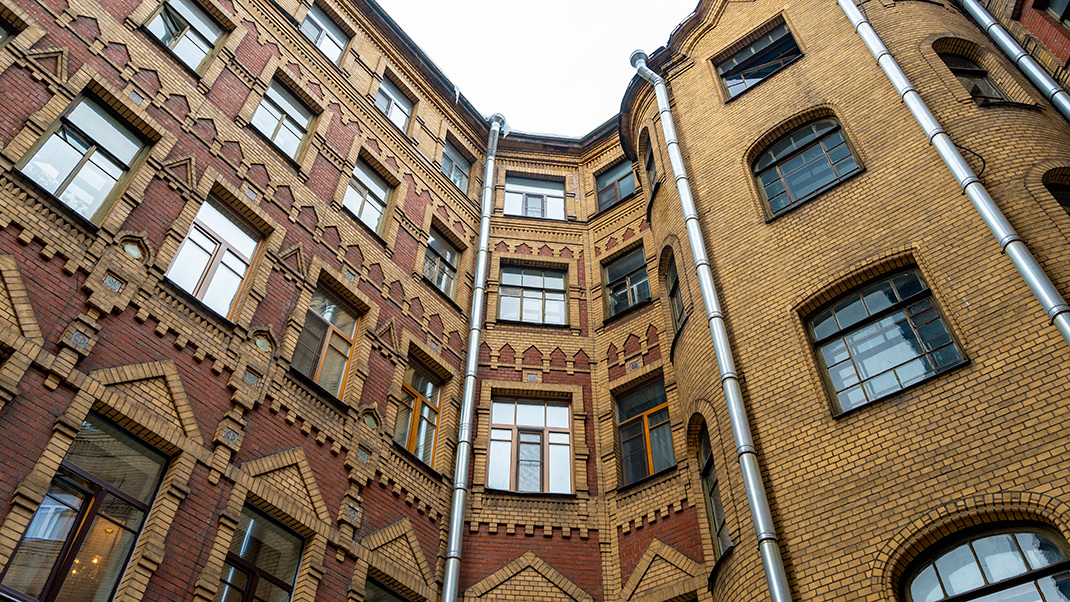
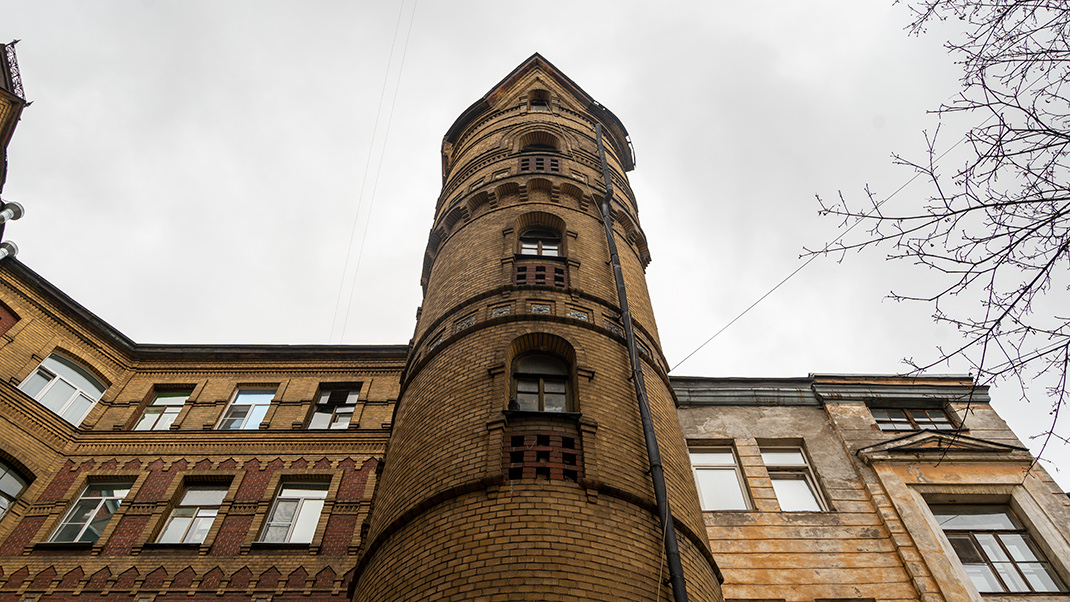
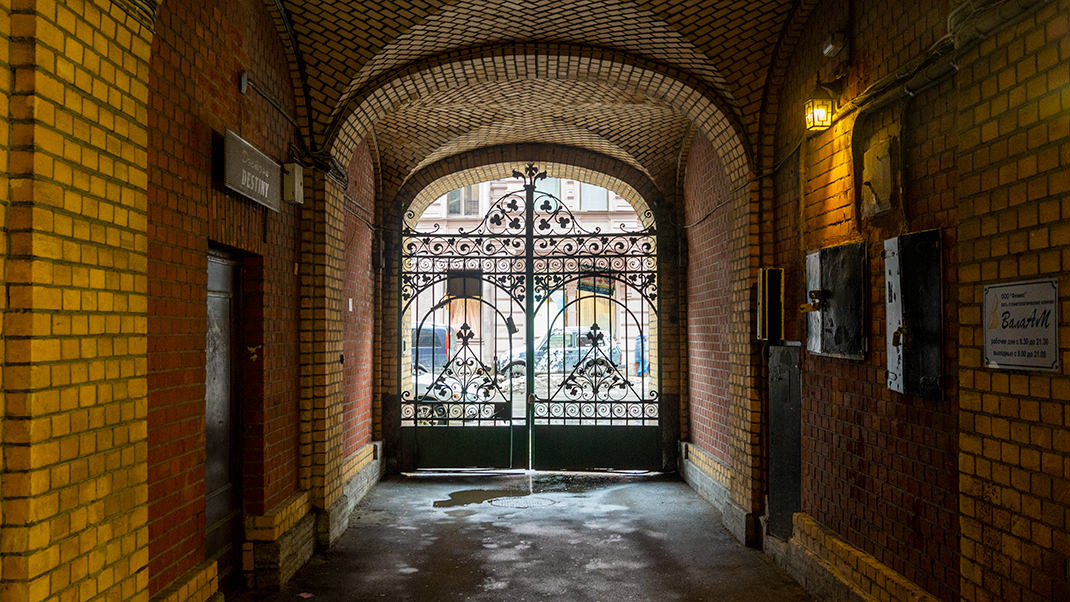
Lastly, I’d like to share another interesting place near the "Vladimirskaya" metro station: the Kanishin Mansion on Kuznechny Lane. Photos of the interiors of the mansion’s grand staircase are frequently found online. The main bonus of this landmark is the free entrance to the building.
Have a nice trip!


